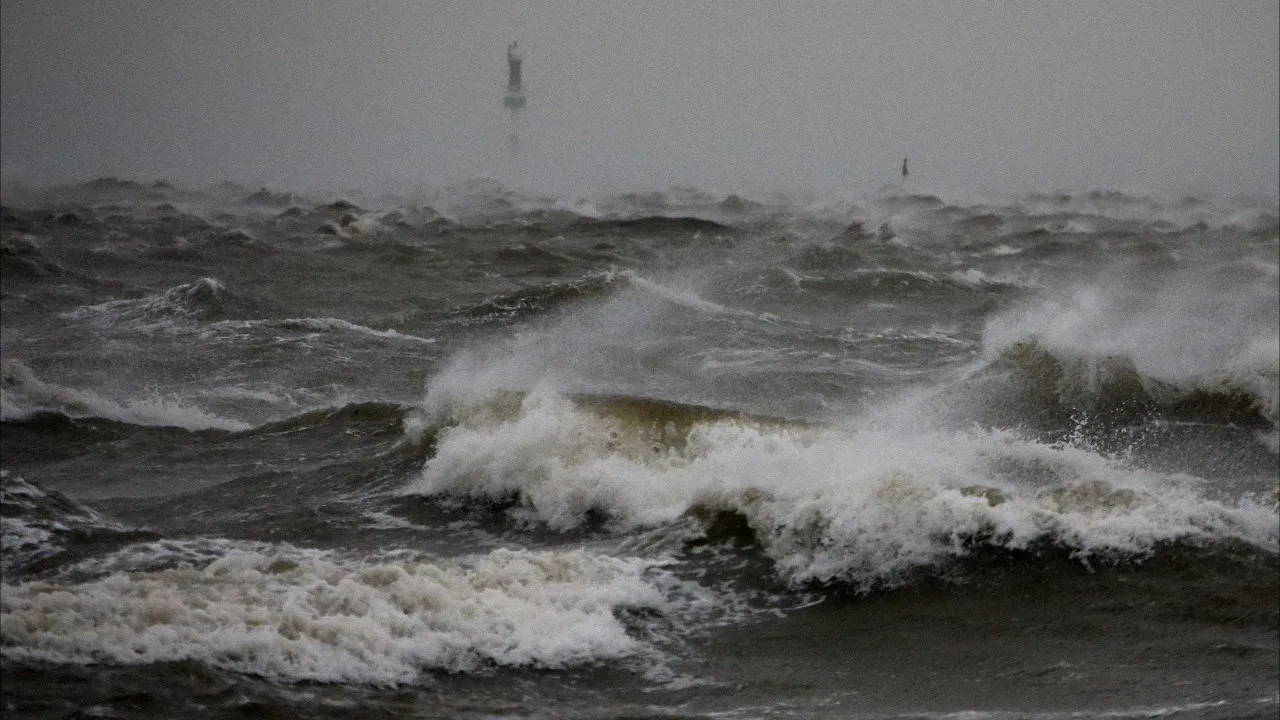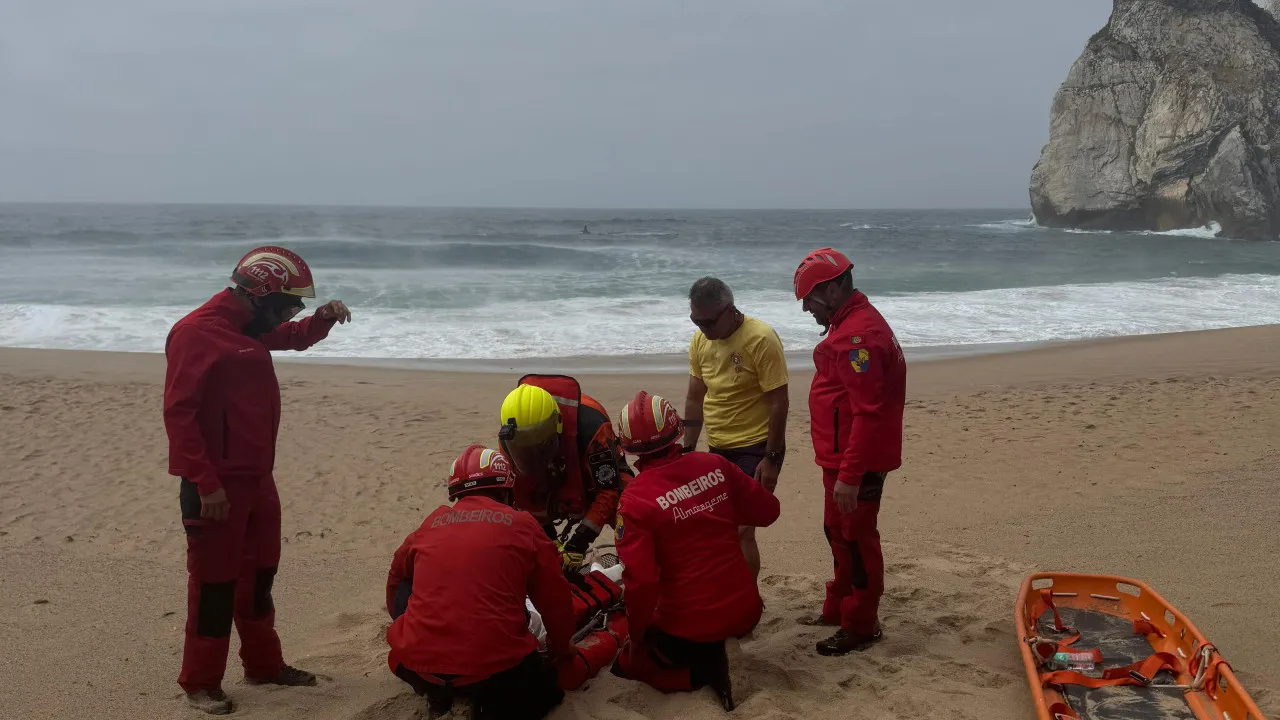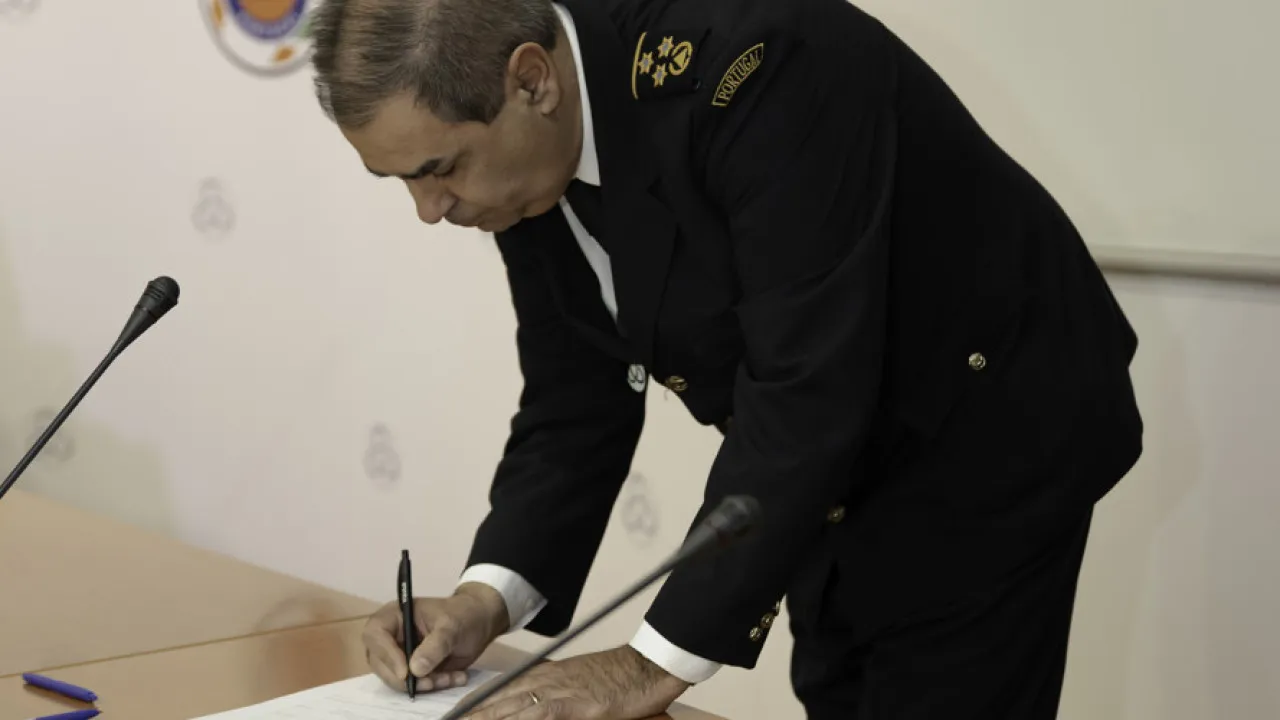
The principal investigator at the Portuguese Institute for Sea and Atmosphere (IPMA) and president of the Portuguese Association of Oceanography (APOCEAN), Miguel Santos, discussed the launch of floaters for a global ocean observation network, known as the Argo project, and the oceans’ crucial role in climate regulation.
He detailed that ocean currents are formed in the poles due to water density differences related to temperature and salinity, a process called “thermohaline circulation.” This moves the colder, saltier waters downwards and the warmer, fresher waters upwards across all oceans.
This movement is vital for global climate regulation but is potentially being altered by global warming, noted the researcher from the Center for Sea Sciences at the University of Algarve. With ice acting as a heat reflector, its reduction increases the ocean’s heat absorption capacity. Moreover, glacier melting introduces more freshwater into the oceans, disrupting the deep circulation.
Santos cited studies indicating a decrease in the intensity of the thermohaline current, which could result in glacial periods. He illustrated, “We’re on roughly the same latitude as New York. Why does it snow in New York and not in Lisbon? It’s due to this circulation. The Gulf Stream—an ocean current carrying warm water from the Gulf of Mexico to the North Atlantic—makes European winters milder compared to the American side. A decline in this current could mean less heat for Europe, leading to harsher winters and potential glaciations.”
Though challenging to predict if and when this might occur, Santos expressed skepticism towards the notion of it stopping entirely. “There’s a belief that its intensity is decreasing,” which could cause various climate changes, given the close ties between the climatic system and the ocean.
Santos has no doubt that human activity is altering the climate, posing risks to humans and possibly leading to the disappearance of our species while the planet changes. However, he avoids an alarmist or pessimistic outlook. When asked if this summer’s high sea temperatures are a result of global warming, he attributed them to “natural variability.”
However, he criticized the treatment of oceans, citing overfishing and plastic pollution. “The sea has always been seen as a place to dispose of waste, because it’s out of sight.” Santos expressed APOCEAN’s desire to promote oceanography to the public and youth. “There are few oceanographers, and we have a vast sea. We lack funding for open sea research, and it’s largely unknown,” he lamented, adding, “People really don’t know what goes on at sea, and we need to change that.”
When asked if humanity’s ignorance is destroying the sea, Santos smiled. “It will endure. It’s us who might not. And we’re not realizing that.”




